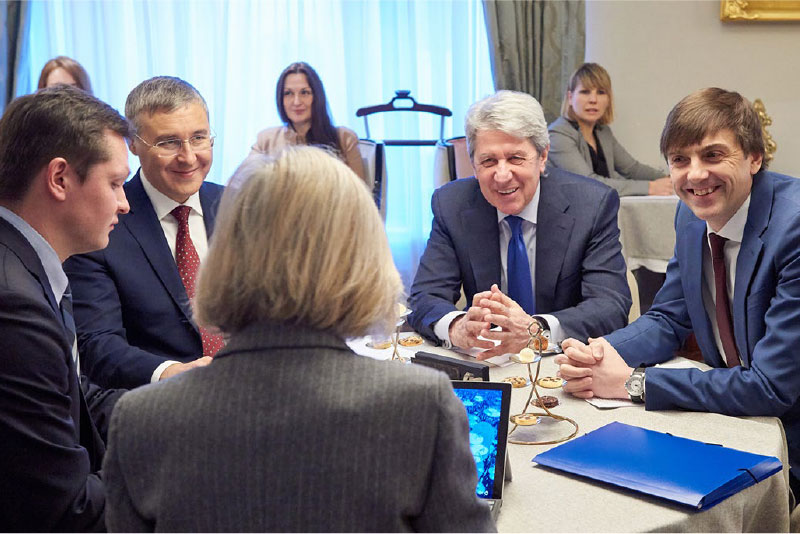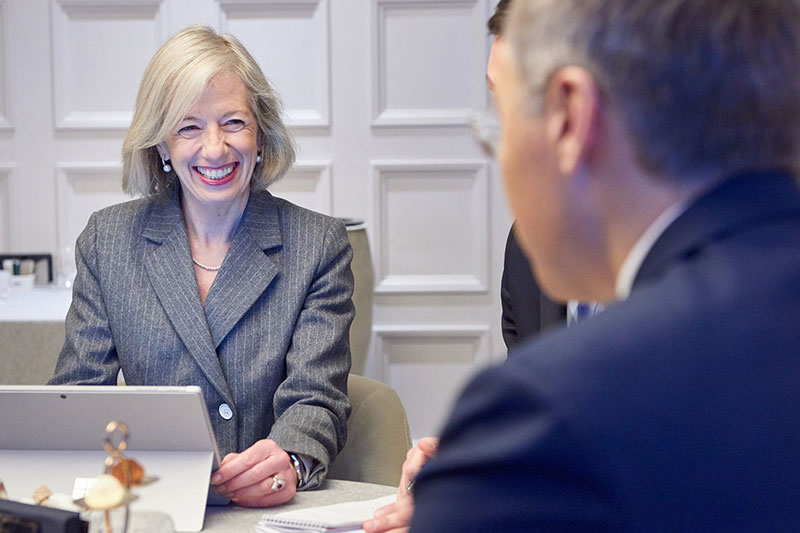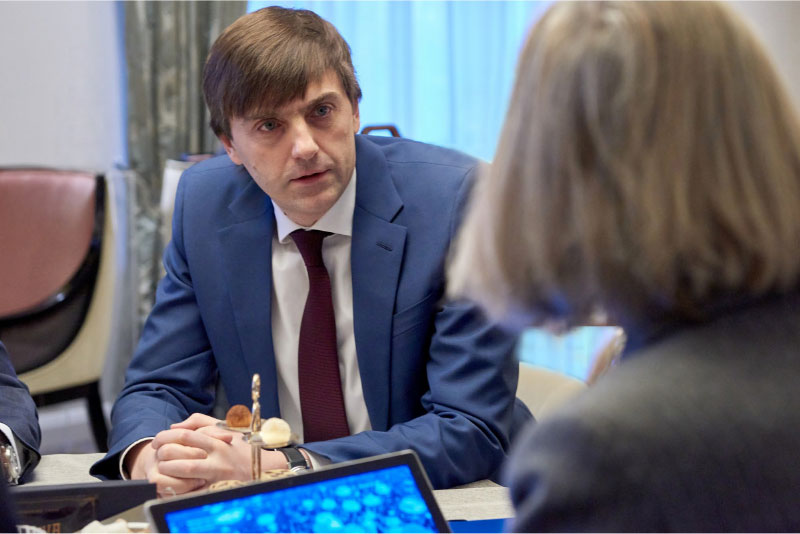


Фотографии пресслужбы Минпросвещения России??????????
The Minister of Education of the Russian Federation, Sergey Kravtsov, held a working meeting with UNESCO Assistant Director General for Education, Stefania Giannini.
The meeting was also attended by the Russian Minister of Science and Higher Education, Valery Falkov; Rector of the Peoples’ Friendship University of Russia, Vladimir Filippov; and Executive Secretary of the Commission of the Russian Federation for UNESCO, Grigory Ordzhonikidze.
Sergey Kravtsov discussed the main priorities for Russian public education policy. Among these priorities, Kravtsov particularly emphasized the idea of education based on respect for human beings and for nature. He expressed his readiness to introduce children to these universal moral values through collaboration with UNESCO.
“The future of our planet in 20-30 years will depend on the values that we instill in the worldview of our children today. We must teach our schoolchildren that wars, ecological disasters, and the destruction of the historical memory of any group of people are unacceptable, and we must do this by showing them an alternative: friendly interaction with others based on tolerance and the creation of common positive values that will help preserve global peace,” said Sergey Kravtsov.
The Minister also noted that Russia works closely with the Organization for Economic Cooperation and Development (OECD) and has performed well in international comparative assessments, such as PIRLS and TIMSS, regarding the quality of secondary school education.
He announced that this year Russia will submit their Voluntary National Review on the Implementation of Sustainable Development Goals until 2030 to the United Nations. The Ministry of Education oversees the fourth goal: “to ensure inclusive and equitable quality education and promote lifelong learning opportunities for all.”
Stefania Giannini stressed UNESCO’s belief that this goal can be achieved on a global scale, so long as children are raised with civic consciousness and respect for universal human values and dignity. These objectives also depend on the ability to resolve the shortage of highly qualified teachers.
Vladimir Filippov stated that, when working on Sustainable Development Goal 4, the specially created UNESCO Committee on Educational Programmes facilitates cooperation between the Ministry of Education and Ministry of Science and Higher Education.
The participants also discussed the development of the UNESCO Institute for Information Technologies in Education.
Source: edu.gov.ru
